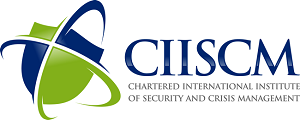 About CIISCM
About CIISCM
The Chartered International Institute of Security and Crisis Management (CIISCM) is an independent body representing security professionals and practitioners worldwide since 2014.
As an independent organization, CIISCM provides unbiased accreditation for training courses, ensuring that individuals receive the highest quality of education and training.
The CIISCM Conference
The inaugural CIISCM Conference series will be kicking-off this year in the capital of Malaysia. This auspicious event is set to take place in the heart of Kuala Lumpur.
CIISCM SECURITY & CRISIS MALAYSIA CONFERENCE 2017
Date: 7 August 2017
Venue: Connexion Conference & Event Centre (CCEC) Bangsar South, Kuala Lumpur
This year, the conference will carry the theme “Terrorism Beyond Borders”. As the theme prescribes, terrorism threats work beyond borders with influences and outreach being unpredictable. The CIISCM Conference will be an epicentre where security professionals and practitioners gather to encapsulate and expound strategic tactics, debate the latest trends and challenges, share experiences, explore innovative ideas, review the latest developments, and most of all, meet and greet peers from across the industry.
Speakers with professional background in research on terrorism movements and counter-anti terrorism efforts have been invited to share their knowledge and experience at this event. They will speak on the rising threat and changing landscape of terrorism across the globe and discuss on the analytics of recent attacks that have taken place in various countries and address security issues faced.
The Speakers
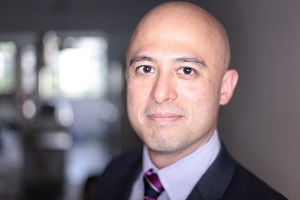 Dr Graham Ong-Webb
Dr Graham Ong-Webb
Research Fellow
Institute of Defence and Strategic Studies
S. Rajaratnam School of International Studies
Nanyang Technological University, Singapore
Dr Graham Ong-Webb holds a PhD in Intelligence Studies from King’s College, London, UK. He draws from a 15-year professional track record as a researcher, analyst, and consultant in the areas of strategy, geopolitics and business intelligence. He has held previous positions as Chief Operating Officer at the Future-Moves Group specialising in foresight, and as Senior Consultant at the Control Risks Group specialising in political and business risks. He has recently established a geopolitical intelligence service called FirstSight.
Topic: The Geo-Political Risks of Terrorism in South East Asia: Practical Steps for Governments, Businesses and People
Synopsis: This presentation starts with a brief geopolitical update on current status of the Islamic State terrorist group on two fronts. The presentation then provides a forecast of terrorism-related risks in South East Asia over the next few years and highlights practical steps that governments, businesses and people must start taking to reduce the impact of these risks.
 Dr Jolene Jerard
Dr Jolene Jerard
Research Fellow and Manager (Capacity Building)
International Centre of Political Violence and Terrorism Research (ICPVTR)
S. Rajaratnam School of International Studies,
Nanyang Technological University, Singapore
Dr Jolene received her PhD in International Relations from the University of St Andrews, Scotland, UK. She specialises on terrorist and extremist groups in Asia. She was a Visiting Research Fellow at the Centre for Conflict and Peace Studies (CAPS) in Kabul, Afghanistan. She has conducted field research in several threat zones including Iraq, Afghanistan, Libya, Somalia, Yemen, Southern Philippines and Southern Thailand. In that connection, she interviewed numerous leaders and members of terrorist and politico-religious groups in Asia, Africa and the Middle East.
Keynote speech: Indomitable Hydra: Transnational Terrorist Threat
Synopsis: The Al Qaeda-centric threat landscape has been eclipsed by an Al Qaeda-IS hybrid global threat, and today, Al Qaeda and IS compete for supremacy (and might possibly even converge) in an evolving terrorism threat landscape that is posing both an ideological and territorial challenge. To mitigate the threat, a multi-pronged strategy that focuses on training, outreach and partnership is required.
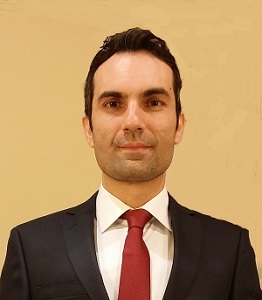 Hamoon Khelgat-Doost
Hamoon Khelgat-Doost
Doctoral Researcher
Department of Political Science
National University of Singapore
Hamoon Khelghat-Doost is a recipient of the NUS Doctoral Research Fellowship. His current research interests concern the intersection of gender and political violence in the Middle East by focusing on the case of the Islamic State of Syria and Iraq (ISIS). Conducting research and working in Southeast Asia for more than a decade, Hamoon is well-versed on the subject of terrorism threats in the region. He has conducted research on the links between the terrorist movements in the Middle East and their counterparts in Southeast Asia.
Topic: Are the Transnational Terror Threat for Real in the Region? Effects and Harnessing the Terror Signals & Signs
Synopsis: The expected defeat of ISIS in Syria and Iraq has raised the level of threats in Southeast Asia. The threat in the regions comes from three sources. One, those who return from fighting in Iraq and Syria “battle-hardened”; two, those freed from detention but who still harbour radical inclinations, and three: those radicalized online by ISIS propaganda.
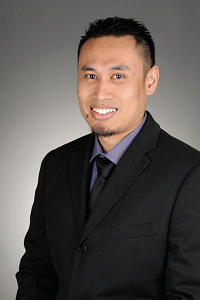 Muhammad Saiful Alam Shah Bin Sudiman
Muhammad Saiful Alam Shah Bin Sudiman
Associate Research Fellow
International Centre for Political Violence and Terrorism Research (ICPVTR)
S. Rajaratnam School of International Studies
Nanyang Technological University, Singapore
Muhammad Saiful holds a Bachelor of Arts Degree in Islamic Theology from Al-Azhar University, Egypt. He is a religious counsellor of the Singapore’s Religious Rehabilitation Group (RRG) and has been engaging detained and former terrorists for more than a decade. His research includes Islamism, Salafism, countering radical ideologies, governance and political system in the early Islam and terrorist rehabilitation. He is currently assisting governments in Southeast Asia, forming terrorist rehabilitation capability and capacity building.
Topic: Religion: An Integral Component in De-Radicalization Work
Synopsis: Countering terrorism requires three types of responses. First, it requires kinetic response to disrupt the operational capabilities of the terrorist groups. Second, it requires mechanism to disrupt terrorism financing. Third, it requires initiatives to win the hearts and minds of the religiously motivated terrorists. Hence, religion is an integral component of counter terrorism.
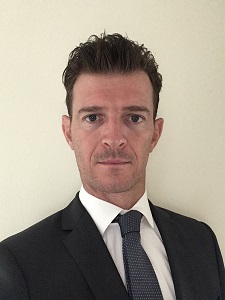 Rodolphe Elégoët
Rodolphe Elégoët
CATS, CLPOS, CAPSS
Rodolphe Elégoët is of French descent. Since 1998, he has security and safety background, both within the military and commercial security management. Currently based in Malaysia with assignments all around Asia, he provides improved understanding of the risk and opportunities in Security, Health and Safety.
Topic: Preparedness, Decision and Practice in Handling a Terrorism Crisis – Bringing Perception to Reality in Terrorist Attacks
Synopsis: Multiple issues, involving facility, staff, subcontractors and visitors, occur on a daily basis. Occasionally such issues have the potential to place individuals at risk or to place the reputation of the Company at risk. Terrorism is highlighted nowadays and it is a huge subject to deal with.
Don’t miss the opportunity to be updated on the latest developments in global security. Join the CIISCM Conference. Reserve yourself a seat today!
For more information, visit www.ciiscmconference.com/malaysia.





